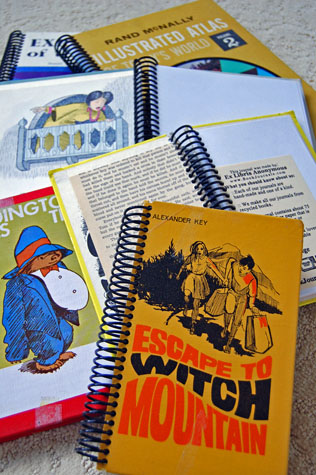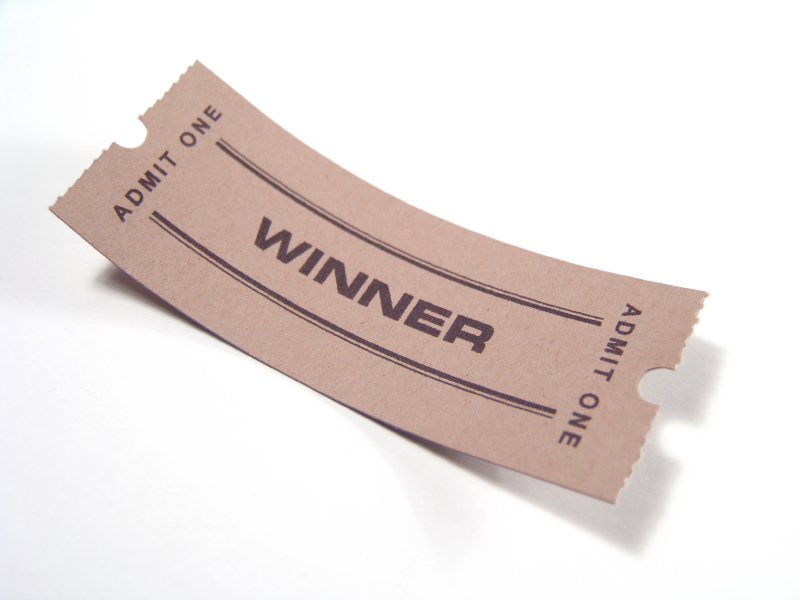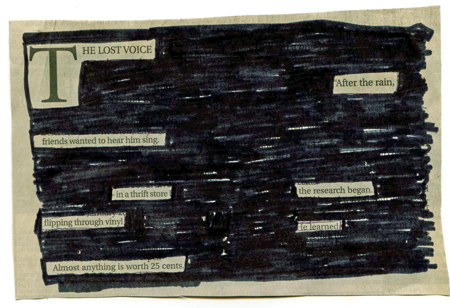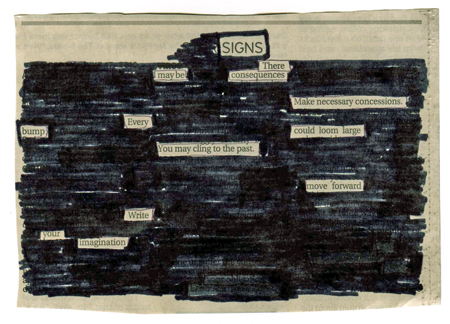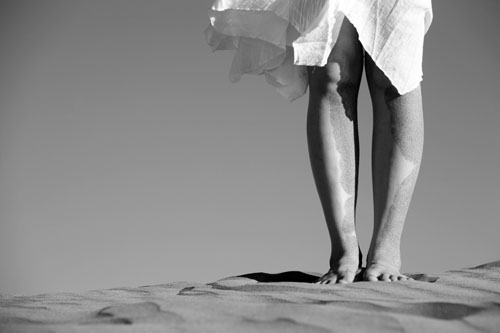Lately, I am capable of small things.
Peeling an orange.
Drawing a bath.
Throwing the cat's tinsel balls.
Believe me, this is not unhappiness.
Only one question—
why this layering on of abeyance?
Though it is winter inside of me —
there is also spring and fall.
Yellow tulips in need of planting
root in a basket by the door.
— an excerpt from Letter to the End of the Year
from The Alchemist's Kitchen by Susan Rich
An Interview with Susan Rich
 Susan Rich is a poet, activist and educator. The author of three poetry collections, her latest book The Alchemist's Kitchen was published in April 2010. She has worked on staff for Amnesty International, as an electoral supervisor in Bosnia Herzegovina, and as a human rights trainer in Gaza and the West Bank. Rich lived in the Republic of Niger, West Africa as a Peace Corps Volunteer, later moving to South Africa to teach at the University of Cape Town on a Fulbright Fellowship. She now lives in Seattle, Washington and teaches at Highline Community College.
Susan Rich is a poet, activist and educator. The author of three poetry collections, her latest book The Alchemist's Kitchen was published in April 2010. She has worked on staff for Amnesty International, as an electoral supervisor in Bosnia Herzegovina, and as a human rights trainer in Gaza and the West Bank. Rich lived in the Republic of Niger, West Africa as a Peace Corps Volunteer, later moving to South Africa to teach at the University of Cape Town on a Fulbright Fellowship. She now lives in Seattle, Washington and teaches at Highline Community College.
In recommending your latest collection of poems, poet Jane Hirshfield praises your “kaleidoscopic curiosity” and your “powerfully kinesthetic language.” What influences or inspirations led you to poetry, and to your “powerful and compassionate” poems?
As an undergraduate, I was lucky enough to study with Madeline DeFrees and she introduced me to the work of Carolyn Forche. The Country Between Us was a pivotal book for me. Here was a woman, a young woman, who had traveled outside of the United States to El Salvador and who had come back to write poems concerning things that mattered — life in extremity. I had just returned from two years living outside the United States as well and wanted to believe that I, too, had permission to write about my life.
The Alchemist’s Kitchen is a wonderful blend of the everyday and the ethereal, and includes many poems inspired by paintings and photographs. What is your favorite poem in this collection? Why?
Oh dear. My favorite? Isn’t that a bit like asking a parent to choose their favorite child? I can’t do it. But what I can do is choose several favorites with the caveat that these “favorite” categories are fluid. If you were to ask me tomorrow, the choices I’d make would be different. Given that I am in the throws of planning a reading for tomorrow night, I can focus on poems that are fun to read — that are meant for the air. One of these is “Mr. Myra Wiggins Recalls Their Arrangement.” It’s a persona poem in the voice of Myra Wiggins’ husband. I had never written from a man’s point of view before and I found it oddly liberating. “The 4 O’ Clock News @ House of Sky” is a poem that I like to read aloud. This poem is dedicated to my very dear friend, the poet Kelli Russell Agodon. I wrote it while in Spain but it concerns our friendship and goes off in some strange directions. The most personal poem in the book might be “The Never Born Becomes of Age” and what I like about it is that I did not want to write it, yet it persisted. I like to write poems that I don’t want to write.
Can you tell us about the title of your book? Where it came from? What it means to you?
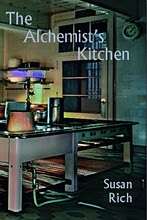 The title of this collection came to me far more easily than the titles of either of my past books. I was re-reading Denise Levertov’s New and Selected Essays – many of which were written I believe — during her time in Seattle. In her essay Biography and the Poet (1992), Levertov takes up the question of literary biography of poets (and by extension, she expands, all biographies) as to whether we need to know about the drugs and dalliances of the life or if they are “the chaff which the the imagination has discarded.” For the most part, she rallies against being too inquisitive regarding the facts of the poets life. But the essay is balanced with praise for certain biographies such as Walter Jackson Bates Life of Keats, where the biography is in service to the poems or to essays or journal pages some poets had published. Sometimes, Levertov says, understanding the life of the poet “one is grateful for a glimpse into the alchemist’s kitchen.” I immediately felt myself drawn to the phrase.
The title of this collection came to me far more easily than the titles of either of my past books. I was re-reading Denise Levertov’s New and Selected Essays – many of which were written I believe — during her time in Seattle. In her essay Biography and the Poet (1992), Levertov takes up the question of literary biography of poets (and by extension, she expands, all biographies) as to whether we need to know about the drugs and dalliances of the life or if they are “the chaff which the the imagination has discarded.” For the most part, she rallies against being too inquisitive regarding the facts of the poets life. But the essay is balanced with praise for certain biographies such as Walter Jackson Bates Life of Keats, where the biography is in service to the poems or to essays or journal pages some poets had published. Sometimes, Levertov says, understanding the life of the poet “one is grateful for a glimpse into the alchemist’s kitchen.” I immediately felt myself drawn to the phrase.
I’ve re-interpreted Levertov’s original sense of looking at a poet’s memoir or biography being the alchemist’s kitchen to the poems themselves being the material of alchemy — the ordinary objects turned to gold. In researching more on the nature of alchemist– in its original meaning – I learned that Alchemy has a double origin in Greek philosophy and Egyptian texts. That the origins of the word itself is thought to be Arabic. But what fascinated me the most was that the alchemists were not merely interested in turning base metals into gold but that there was a spiritual discipline and that the transformation of metals was secondary to the wisdom that the alchemist would himself attain through their work. One of my favorite quotes by the poet Stanley Kunitz goes like this: “the first task of the poet is to create the person who will write the poems.” So to answer your question, I’ve used the term “alchemist’s kitchen” as a metaphor for the process of writing poems. That said, I also am a great lover of food — growing it, preparing it, bringing friends together to enjoy it.
You teach community college students. How do you balance your work teaching and encouraging students with your own writing and book promotion?
Your question implies that there is balance in my life. Hmm. Most of my own writing happens during the summer, over winter break and on sabbaticals. I think that’s why I’ve embraced the technology of the blog. I began the blog this past November as an experiment. I’ve been surprised at how much I’ve enjoyed the blogosphere — and I suspect it is because I can maintain a small handhold on my creative life even during term time. My teaching life is also creative, but in a different way.
Your book was recently published and you’ve embarked on a tour that includes both the traditional (bookstore readings, print interviews, etc) and non-traditional (in-home ‘salon’ readings, virtual readings and interactive readings, etc). Where is your ideal reading?
My ideal reading? I would like to read in a really wonderful restaurant. A place that uses as much locally grown food as possible and that’s housed in an old building. Maybe the building is made of stone and was once a dance hall or flour mill. After a scrumptious meal and perhaps a bit of live music — while the guests tapped the tops of their crème brulee, I would read my poems. I would read food poems about “glazed florentines and praline hearts” or “tiramisu and lemon tarts.” I’ve read my poems in a variety of venues, but I’m still waiting to be asked to read in a restaurant. I would like that.
To learn more about Susan Rich and her poetry, go here.
 For example, in Bad Girls: 26 Writers Misbehave I found Caroline Leavitt and Kaui Hart Hemmings. I liked their short stories so much, I raced to find their novels. The Descendants, by Hemmings, turned out to be one of my favorite books.
For example, in Bad Girls: 26 Writers Misbehave I found Caroline Leavitt and Kaui Hart Hemmings. I liked their short stories so much, I raced to find their novels. The Descendants, by Hemmings, turned out to be one of my favorite books. And The Pacific Northwest Reader is a wonderful surprise of essays about the upper left corner of the United States. The collection is reminscent of the Federal Writers' Project of the 1930s, and each essay is crafted not by professional writers but by independent booksellers and librarians. As a bonus, a portion of book sales go to the American Booksellers Foundation for Free Expression. The Great Lakes Reader is also available now, and other regional volumes are in the works.
And The Pacific Northwest Reader is a wonderful surprise of essays about the upper left corner of the United States. The collection is reminscent of the Federal Writers' Project of the 1930s, and each essay is crafted not by professional writers but by independent booksellers and librarians. As a bonus, a portion of book sales go to the American Booksellers Foundation for Free Expression. The Great Lakes Reader is also available now, and other regional volumes are in the works. 
 Poetry, too, produces some great anthologies. I'm loving The Poets Guide to the Birds, both for its unique theme and for its breadth of writers. The collection includes work from 137 poets, and includes big names (Ted Kooser, Naomi Shihab Nye) and lesser known but no less talented poets (Linda Zimmerman, Keith Ratzlaff).
Poetry, too, produces some great anthologies. I'm loving The Poets Guide to the Birds, both for its unique theme and for its breadth of writers. The collection includes work from 137 poets, and includes big names (Ted Kooser, Naomi Shihab Nye) and lesser known but no less talented poets (Linda Zimmerman, Keith Ratzlaff).




